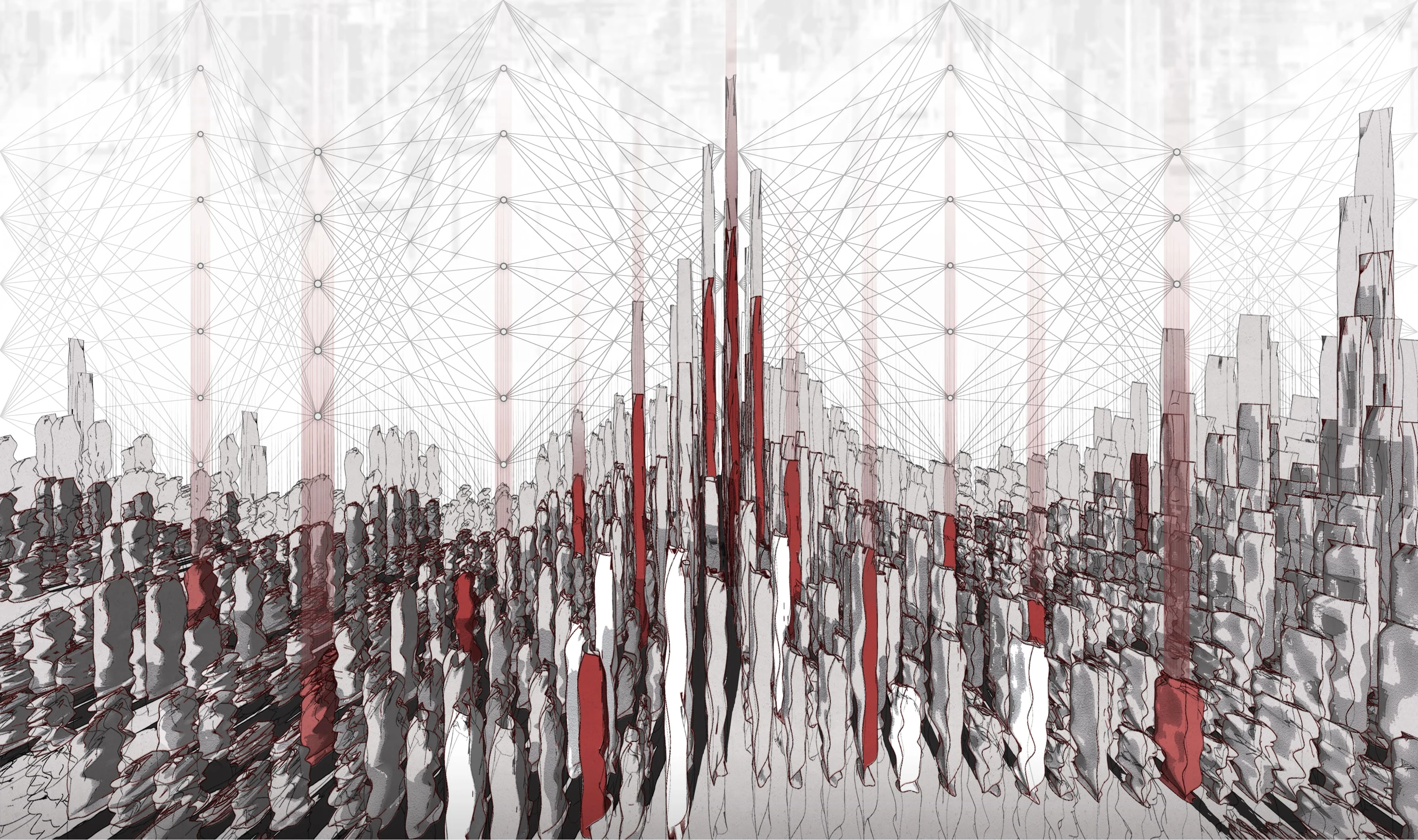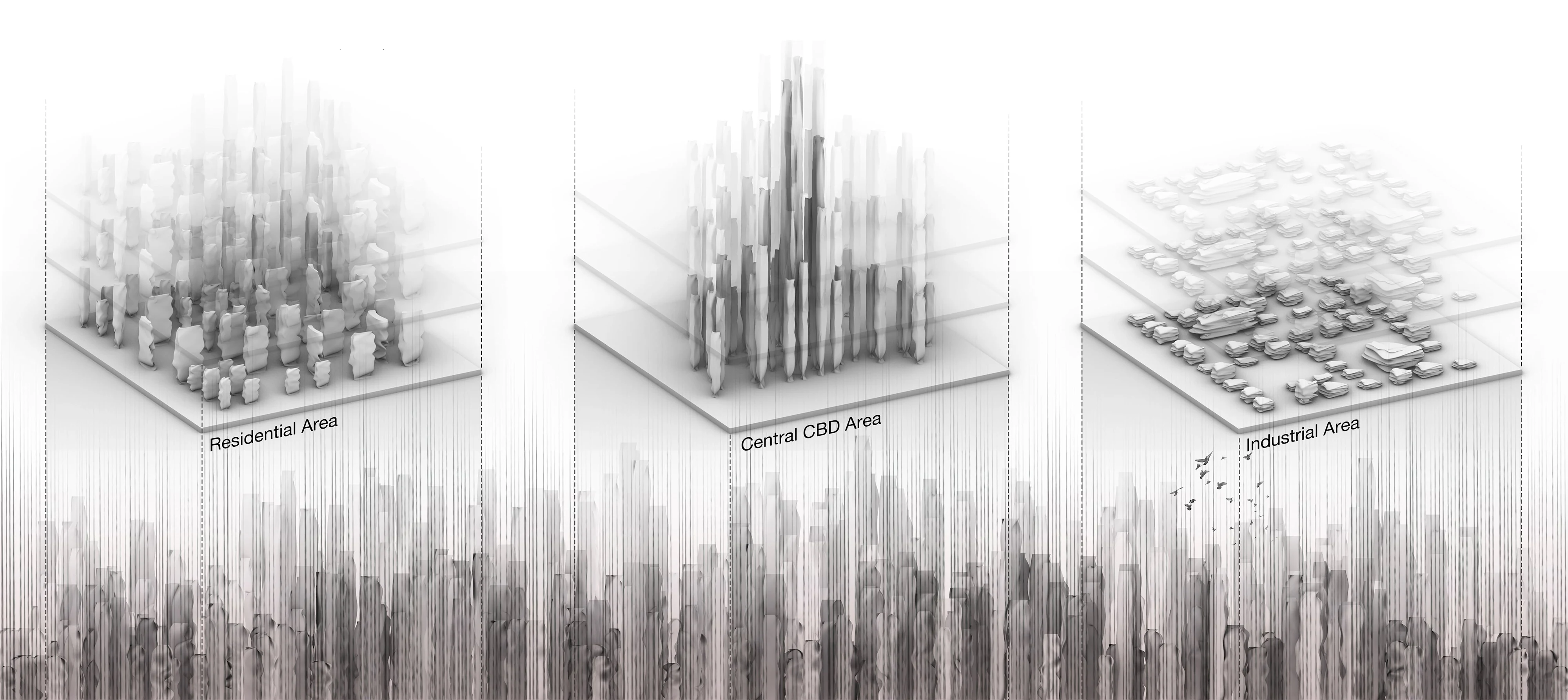Generative Futures: AI in Architectural Design
Description
This exhibit explores how artificial intelligence (AI) and cutting-edge technologies are revolutionizing architectural design, construction, and public engagement. It showcases two core projects: a diffusion-based machine learning method for generating 3D architectural forms and an artificial neural network for creating vectorized architectural geometries. Both projects emphasize pragmatic applications of AI in architecture, moving beyond conceptual design to address real-world construction, interactive public experiences, and sustainable development.
Visitors will engage with interactive displays that allow them to input design parameters and witness the AI-generated architectural forms in real time. Demonstrations of robotic fabrication, including 3D printing and material assembly, illustrate how these AI-driven designs can be constructed with precision and efficiency. The exhibit also highlights applications such as urban planning, adaptive public spaces, and sustainable material usage to address global challenges.
By integrating AI into the architectural workflow, this exhibition aims to democratize design tools, foster creativity, and enhance public participation in shaping the built environment. The audience will leave with a deeper appreciation of how technology can serve the public good, advancing architecture into a future of inclusivity, sustainability, and innovation.
Biography
Prof. Dr. Hao Zheng currently serves as an Assistant Professor and the Associate Program Leader of the Master of Architecture Program at the Department of Architecture and Civil Engineering, City University of Hong Kong. He is also the director of the Architectural Intelligence Group (AIG). He graduated from the Ph.D. program at the University of Pennsylvania, specializing in machine learning, AI-generated content, data-driven design, and big data analysis. He holds a Master of Architecture degree from the University of California, Berkeley, and Bachelor of Architecture and Arts degrees from Shanghai Jiao Tong University. Previously, Hao worked as a research assistant at Tsinghua University and UC Berkeley with a concentration on robotic assembly, machine learning, and bio-inspired 3D printing. His teaching experience includes: workshop tutor at Tongji University; lecturer at the University of Pennsylvania; teaching fellow at Shanghai Jiao Tong University. Also, Hao serves as the co-organizer and reviewer for international conferences of ACADIA, CAADRIA, CDRF, and more than 30 SCI/SSCI/AHCI journals. His publication includes around 70 papers with more than 20 SCI/SSCI/AHCI journal articles and the cover paper in Advanced Science. In addition, Hao has led development and research projects with a total amount of 750,000 USD, and won multiple research and teaching awards. He has taught more than 30 courses, supervised more than 10 doctoral students, and been invited to give more than 120 speeches at international conferences and academic organizations. He also served as the editor for journals, the member of academic societies, and the expert consultant for listed companies, etc.
Materials
The exhibit is a hybrid of live demonstrations, and conceptual displays, occupying approximately 5 square meters. It consists of: 1) Live Demonstrations: 3D printing stations showcasing how AI-generated designs are fabricated physically. 2) Conceptual Displays: Panels and multimedia projections explaining the underlying technologies (e.g., diffusion models, neural networks) and their applications in sustainable architecture and urban design. 3) Showcase Spaces: Prototype models, material samples, and miniaturized AI-generated structures illustrating real-world applications such as adaptive public spaces and sustainable construction.
Organisation
City University of Hong Kong


